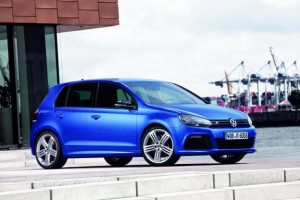Despite the slow global recovery, a weak U.S. economy, rising raw materials costs and other “headwinds,” automakers around the globe have been delivering some solid earnings for the year’s second quarter – though not always enough to keep investors happy.
That’s what Volkswagen found out today as it reported a tripling of its second-quarter earnings, only to have investors sell off its stock due to concerns about the challenges the company faces in the months ahead.
The market gave a warmer response, however, to Hyundai Motor, the Korean carmaker beating analysts’ forecasts with a 37% rise in quarterly profits driven by record vehicle sales and, in particular, gains in the critical U.S. market. But Hyundai also had some warnings for analysts and investors.
Hyundai appears to have done the best job of making gains at the expense of its Japanese rivals – who were hammered by a March 11 earthquake and tsunami that nearly shut that country’s auto industry down. But Hyundai is also riding a wave of new products, from the subcompact Accent to the big Equus, which has proven a bigger success than even company executives had forecast.
The world’s fifth-largest automaker – when combined with Korean partner Kia, Hyundai earned 2.3 trillion won, or $2.3 billion, for the April – June quarter, about 10% above a consensus forecast by leading analysts. A year ago, it earned 1.7 trillion won. Vehicle sales, meanwhile, shot up 13%, to 1.03 million.
But the maker did issue a warning about the near-term future, Chief Financial Office Lee Won-hee noting that, “Overall, the global automaker environment will not be easy in the second half. We expect Japanese carmakers to adopt a strategy to aggressively expand market share in the United States and other markets.”
For his part, Volkswagen Chief Executive Martin Winterkorn also urged caution, warning that, “the coming months will challenge us and demand effort in order to maintain this high level.” A company statement pointed to, “Volatile interest-rate and exchange rate developments as well as raw materials prices (which) could weaken the positive volume effects.”
That was enough to sour analysts despite VW’s net profits soaring to 4.78 billion Euro, or $6.86 billion, more than triple the 1.35 billion Euro it reported during the second quarter of 2010. The maker saw revenues jump 5.9% to 40.3 billion Euros.
Despite the near-term speed bumps, VW has continued to project significant growth in the years ahead, with a target of becoming the world’s largest automaker before the end of the decade.

